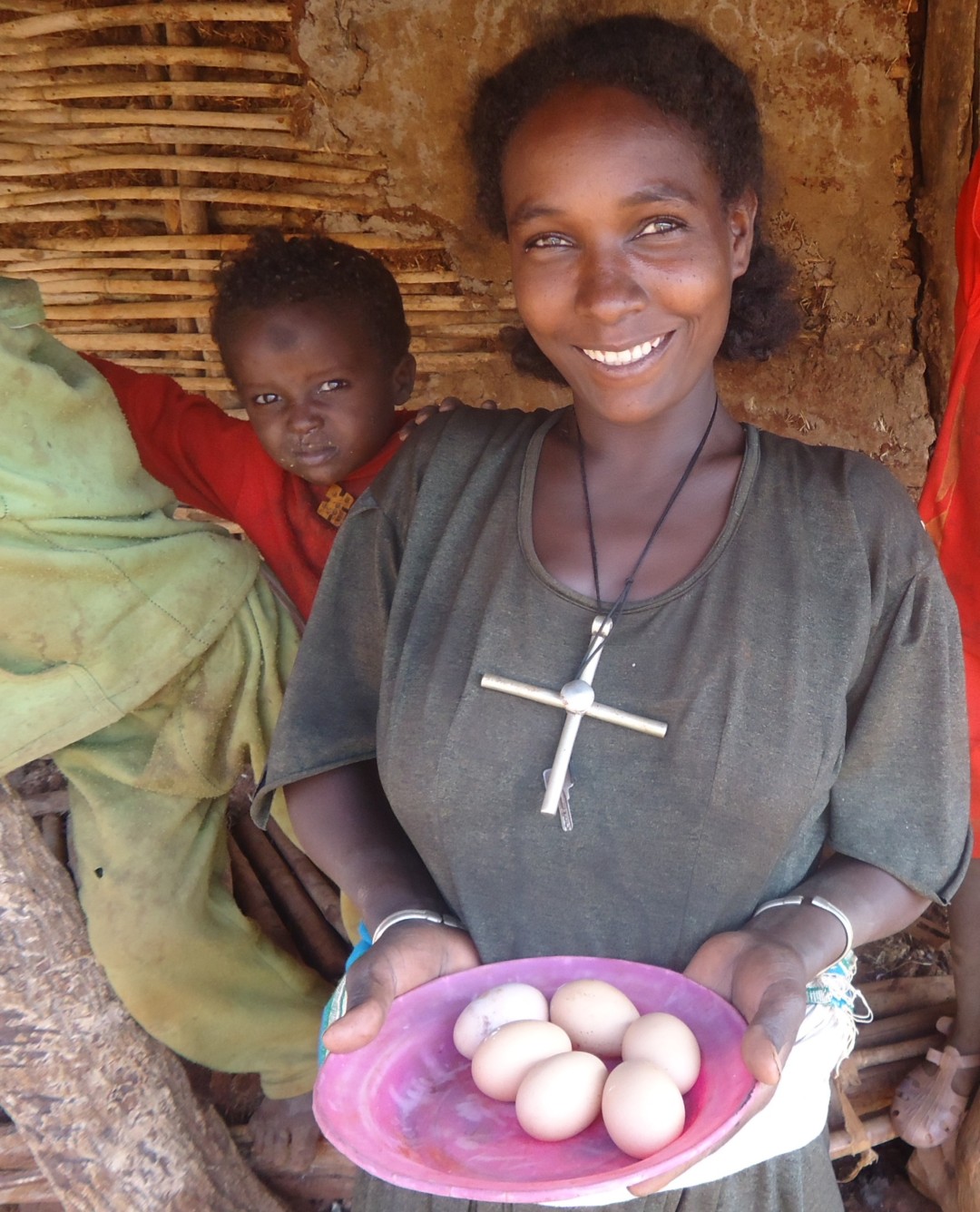Eggs for Sale!
The project, led by CPAR (Canadian Physicians for Aid and Relief), strengthened the food security of 420 farming households, in the Dibate district, by favouring the participation of women, a vulnerable population in the region. The project created seven Farmer Field Schools (FFS).
The welfare of Ashiko Dango's family has long been dependent on the crops produced by her husband. Like other small-holder farmers in the community his agricultural production levels were insufficient to feed his family year round. Ashiko sold charcoal and firewood to Dibate Town and worked as a daily labourer to try to earn enough money to help bridge the gap. However, earnings from charcoal and firewood are low compared to the time and effort required, and farm labour is inconsistently available. The family struggled to meet its needs and only one of their ten children was able to attend school.
When the Women-led Community Food Security and Nutrition (WL-FSN) project came to her village, Ashiko jumped at the chance to join. The opportunity to pursue poultry production piqued her interest and she saw the potential for change in her family's situation. Ashiko immediately demonstrated leadership in her FFS group and was asked to participate in training to become a facilitator for her group. She and her other members took part in training on improved poultry management and production, modern poultry house construction and proper feeding practices. These skills along with her active participation in the group helped her to acquire the knowledge and ability to design specific solutions for production constraints as they arise in backyard poultry production.
After the training she was the first member of the FFS group to put the theory into practice. She quickly constructed her own improved poultry house from locally available materials and upon receipt of 14 improved three-month old pullet chickens, one cock and 20 kg of concentrated start-up feed, she promptly began her poultry activities.
Under her careful eye, Ashiko's hens quickly began producing eggs, even earlier than others in the group. Within three months of starting her poultry production she was able to collect eggs on a daily basis, collecting an average of 40 per week. From this, she was able to earn about 40 cents per egg. From nine months of poultry egg production, she has earned more than 2,800 birr (USD $58) in total. Ashiko used some of the money to purchase a goat, some to pay school fees for four of her children, and has deposited the rest of her money into Dibate Commercial Bank for future investments.
In addition to the financial benefits of egg production, her family's nutrition is benefiting too. Ashiko is now integrating eggs into the diet of her children, providing them with a key source of protein. As the facilitator for her group, Ashiko has noted that, in addition to her own, the livelihoods of many women in the FFS group have greatly improved. She noted that she used to be viewed by the community as someone with no assets and no ability to develop but this perspective has changed. She has worked hard and used the opportunities she has been granted. Expanding on this point, Ashiko explained, "When I joined the program, I used it to inspire myself. I completely devoted myself to use this support to bring about change." She asserted that she will continue doing poultry egg production to further improve her economic status.
Ashiko is not the only member of her group achieving success with egg production but she willingly shares her knowledge and experience with other group members who may not be maximizing their earning potential. As a group, they discuss the differences in approaches and practices, sharing lessons learned and making adjustments where necessary. For those members and non-members alike who visit her home, Ashiko talks about the difference between raising improved and local chickens. She is comfortable and confident when talking about the pros and cons, noting that the improved chickens need more food and careful management but with the right approaches, they produce more. Ashiko's is now an advocate in her community, encouraging other women to pursue more profitable income generating activities and serving as a resource for those who wish to learn more.
